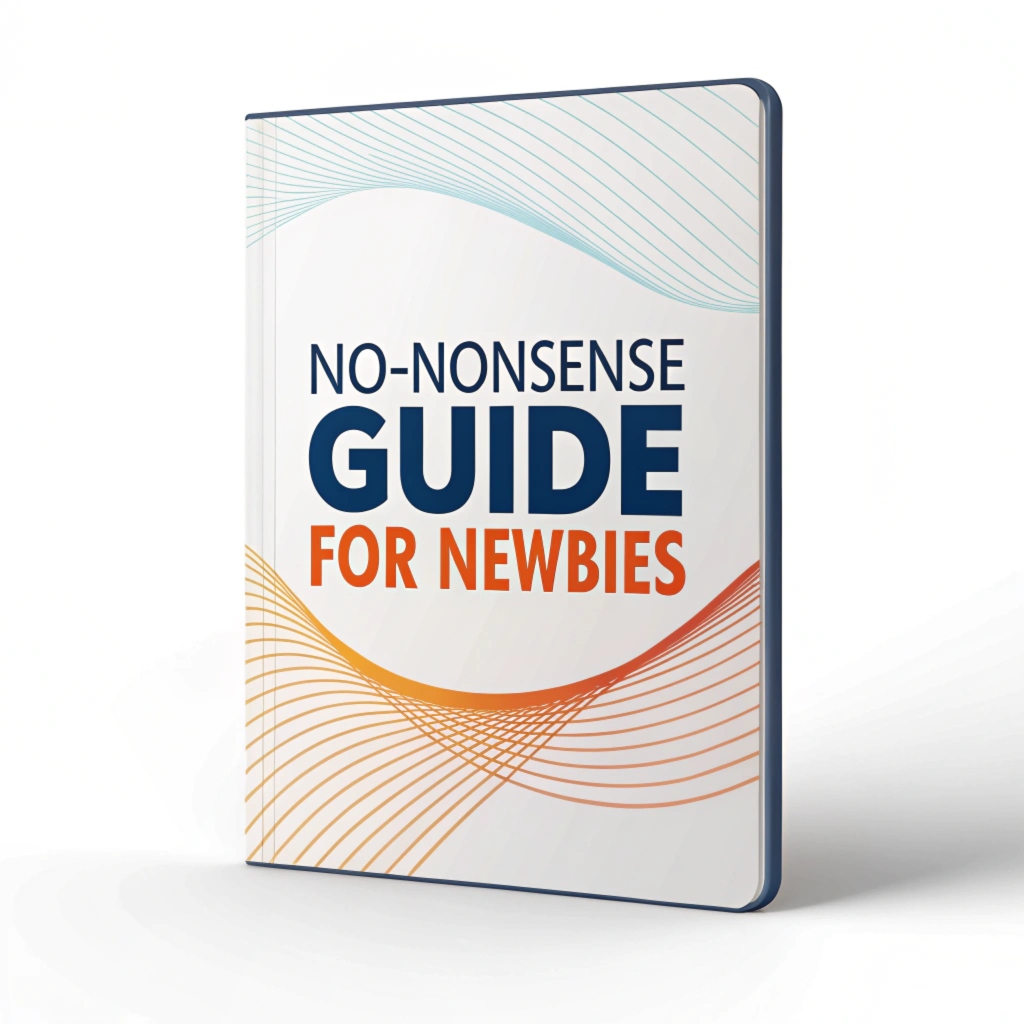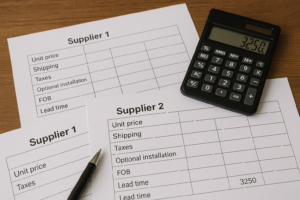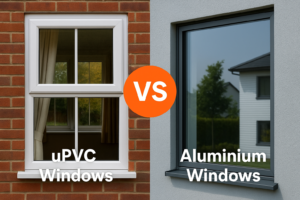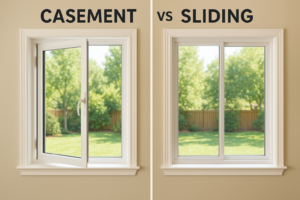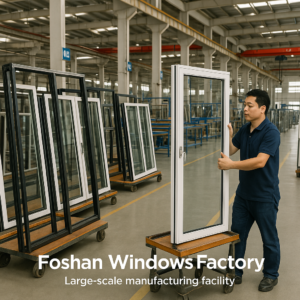Stuck between uPVC and aluminium windows? Both are solid options—but the better one depends on what matters most to you.
uPVC windows excel in insulation and cost-efficiency, while aluminium windows offer superior durability and sleek aesthetics. The best choice depends on your climate, design goals, and budget.
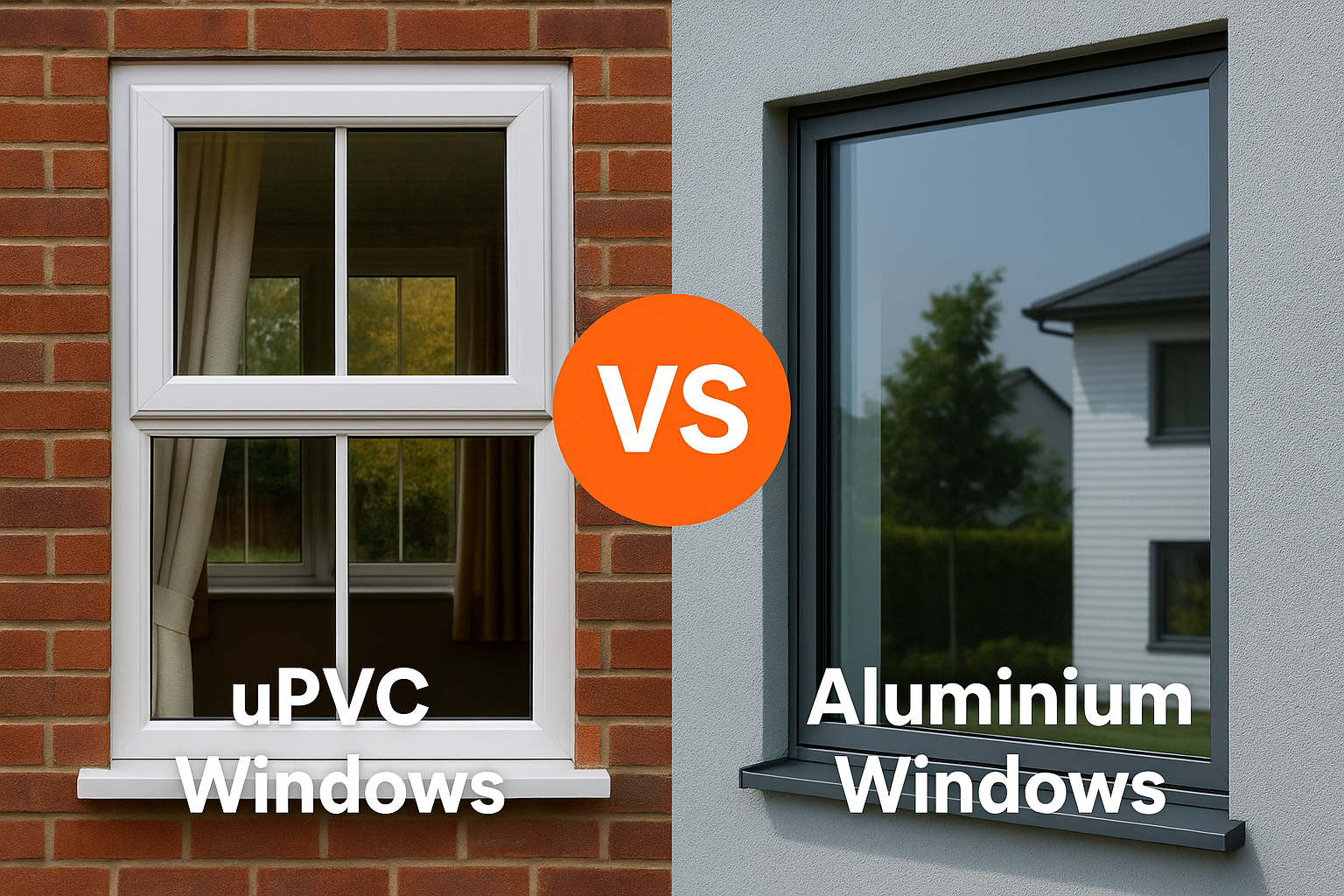
From the factory floor to international export, I’ve helped clients across climates and project types choose between these two materials. Let me break it down for you.
Which windows are better, aluminium or uPVC?
Both materials have strengths, but your project needs will decide the winner.
uPVC windows1 are better for insulation and energy savings, while aluminium is stronger, sleeker, and better for large openings or high-end designs.
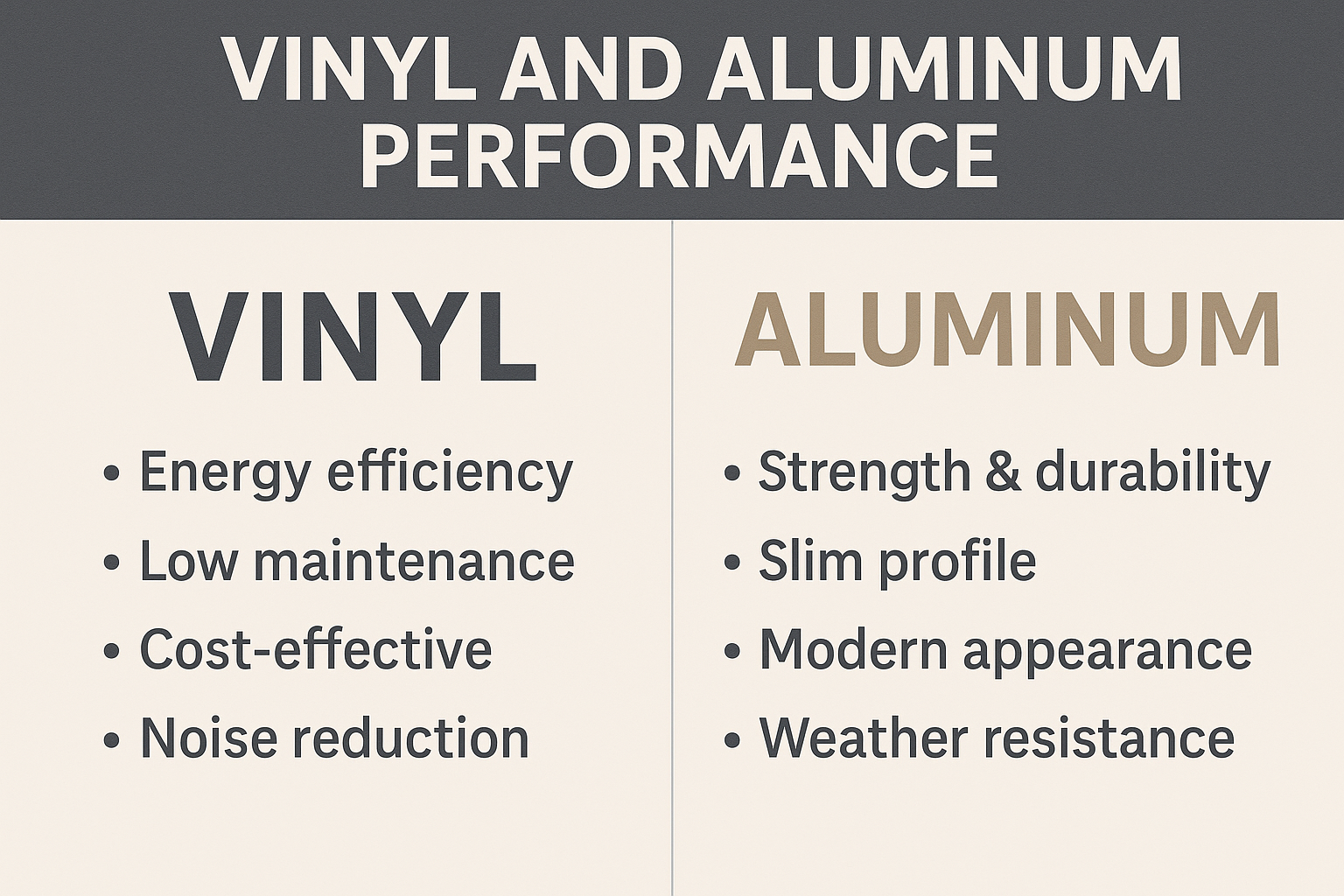
In residential builds like Emily’s villa, uPVC is the smarter choice. Its low thermal conductivity2 (0.12–0.3 W/m·K) makes it excellent for energy efficiency, keeping heating and cooling costs low. The sound insulation is also great, ideal for suburban or city homes.
But aluminium frames3 dominate in modern architecture. They’re slimmer and stronger, letting you design bigger windows without compromising safety. In Ahmed’s showroom projects, aluminium’s clean, minimal look wins every time. It also lasts longer—35 to 45 years, versus uPVC’s 20 to 30.
Here’s how the two stack up:
| Feature | uPVC | Aluminium |
|---|---|---|
| Insulation | ★★★★★ | ★★☆☆☆ |
| Soundproofing | ★★★★☆ | ★★☆☆☆ |
| Lifespan | 20–30 years | 35–45 years |
| Custom Colors | Limited | Extensive |
| Strength | Moderate | High |
| Corrosion Resistance | Excellent | Good (with coating) |
| Best Use | Residential | High-end/commercial |
Emily needs warmth and silence. Leon needs durability and compliance. Michael needs quick installs on a budget. We match the material to the mission.
What are the disadvantages of uPVC windows?
uPVC isn’t flawless. It saves money and energy—but not without trade-offs.
uPVC has lower strength4, fewer custom design options, and may fade in harsh sun. It also has a shorter lifespan5 and less premium appearance.
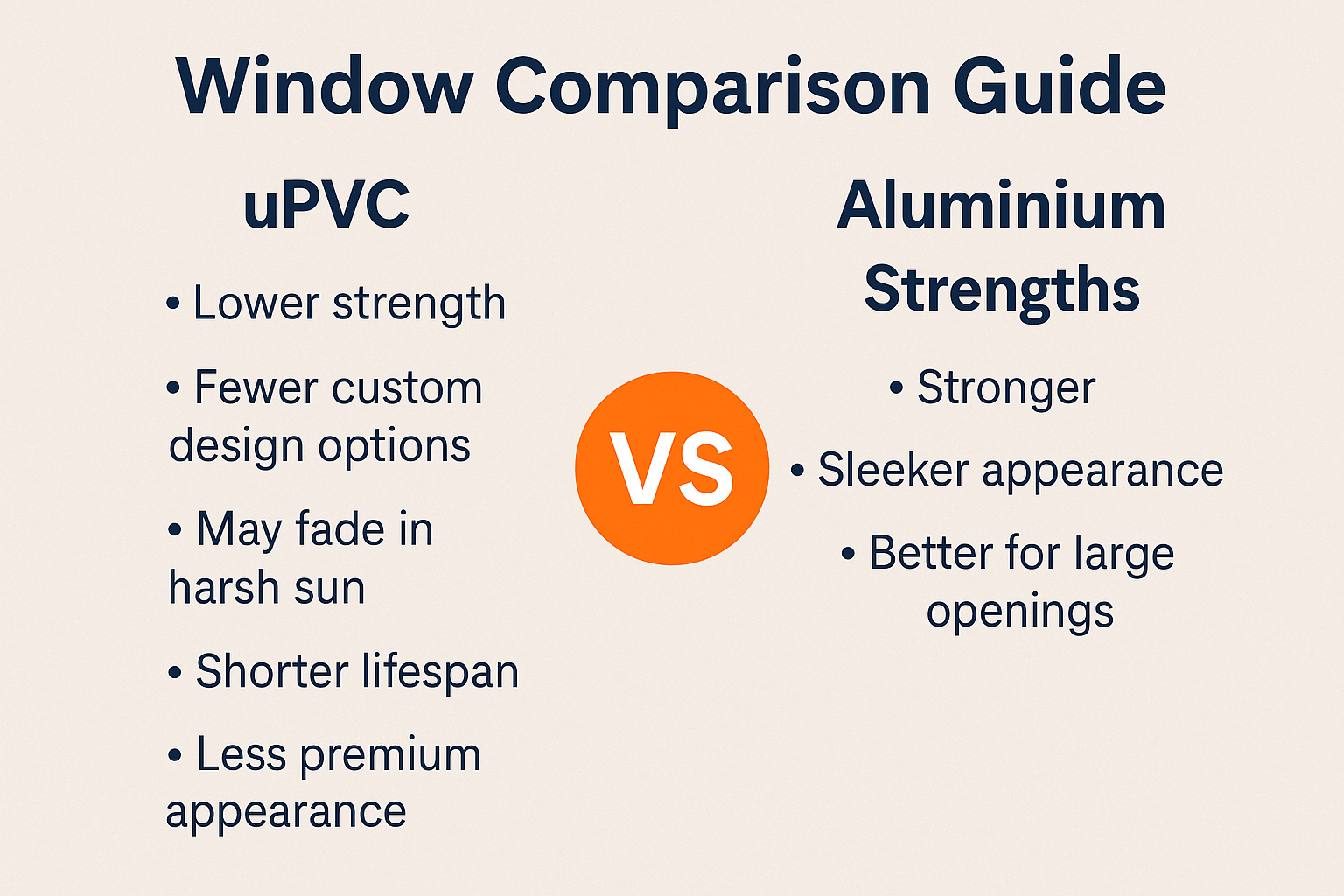
If you're building a modern villa or showroom, uPVC may not hit the mark on aesthetics. Its frames are thicker to compensate for lower strength, and its surface finish doesn’t match the premium look of powder-coated aluminium.
There’s also longevity. uPVC typically lasts 20–30 years. In harsh climates—like UAE summers—it can yellow or fade, especially with cheaper grades. Emily, who values a clean, modern finish, might be disappointed by the plastic-like feel over time.
It’s also less green. Unlike aluminium, which is fully recyclable, uPVC takes decades to break down in landfills. Leon, focused on sustainability, needs to weigh that.
| Issue | uPVC Drawback | Who’s Affected |
|---|---|---|
| Appearance | Thicker frames, “plastic” look | Ahmed, Emily |
| Lifespan | 20–30 years only | Leon, long-term planners |
| UV Resistance | May discolor in heat | UAE regions |
| Sustainability | Not fully recyclable | Green builders |
| Size Limits | Not for extra-large windows | Michael (structural limits) |
We offer reinforced uPVC with UV stabilizers and laminated foils to help—but it’s not always enough for high-end tastes.
Are uPVC windows cheaper than aluminum?
Yes, and often by a big margin.
uPVC windows cost 10–30% less than aluminium for similar performance, making them ideal for budget-conscious projects.
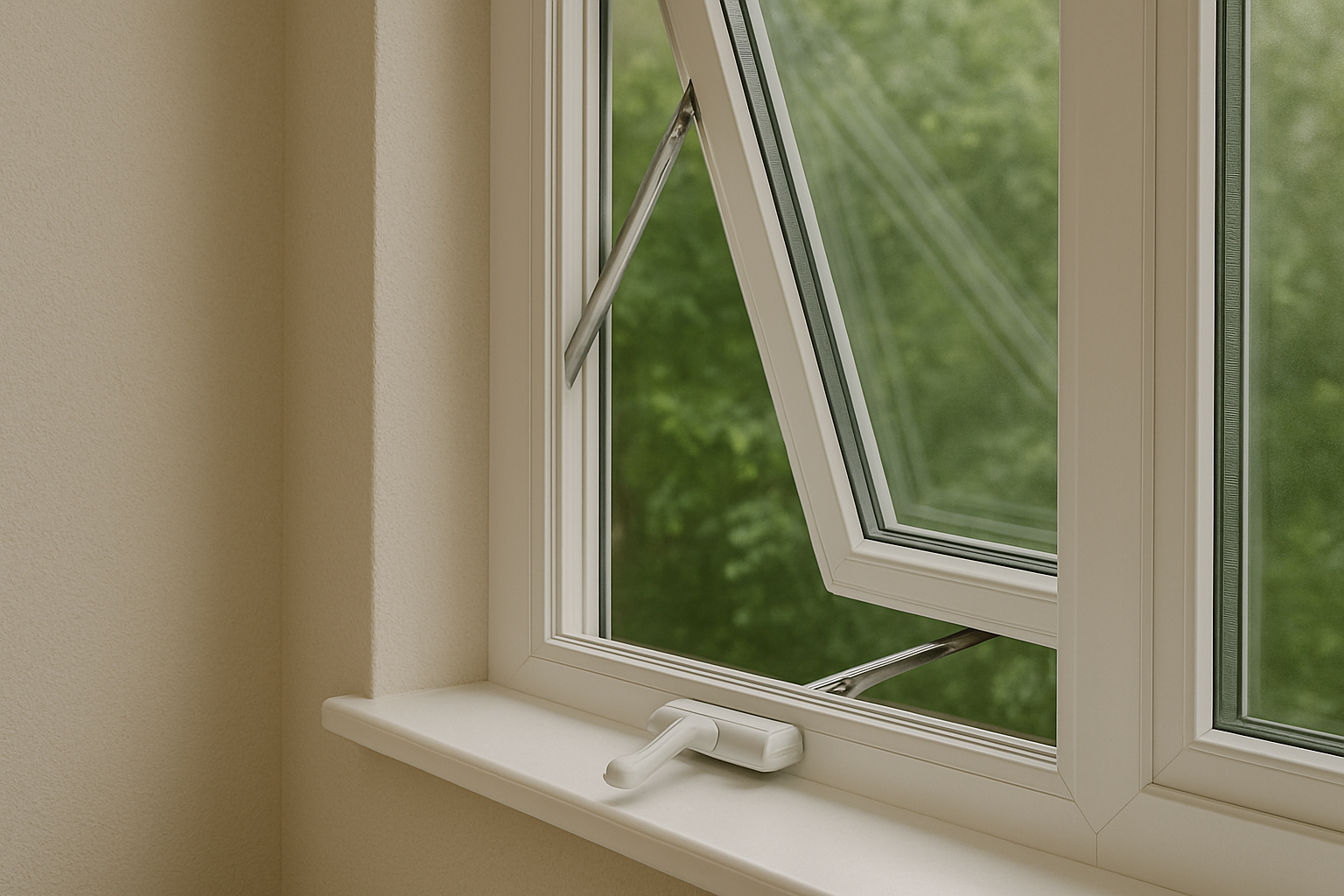
Michael often asks about value. For basic thermal and acoustic performance6, uPVC delivers the same—or better—than aluminium, at a much lower price point. The savings can be substantial, especially for large-scale residential developments.
Installation is also easier with uPVC, thanks to its light weight. Leon benefits from this with tighter timelines and labor constraints. But there’s a trade-off—aluminium lasts longer and needs less replacement, which matters in high-value buildings or investment properties.
Ahmed’s clients sometimes go for aluminium, not because it’s cheaper, but because it looks better and boosts the property’s status.
| Factor | uPVC | Aluminium |
|---|---|---|
| Purchase Cost | Low | Medium to High |
| Install Cost | Low | Medium |
| Maintenance | Low | Very Low |
| Lifespan | Shorter | Longer |
| Total Cost Over 20 Years | Competitive | Competitive (if minimal replacement) |
We always provide full life-cycle cost breakdowns7 for our clients. It’s not just about today’s price—it’s about the next 20 years.
Why are uPVC windows better?
Not everyone needs premium metal frames. For many homes, uPVC is a smarter choice.
uPVC offers the best insulation, noise control8, low maintenance9, and climate resistance at the lowest price. It’s ideal for residential use and energy-conscious builds.
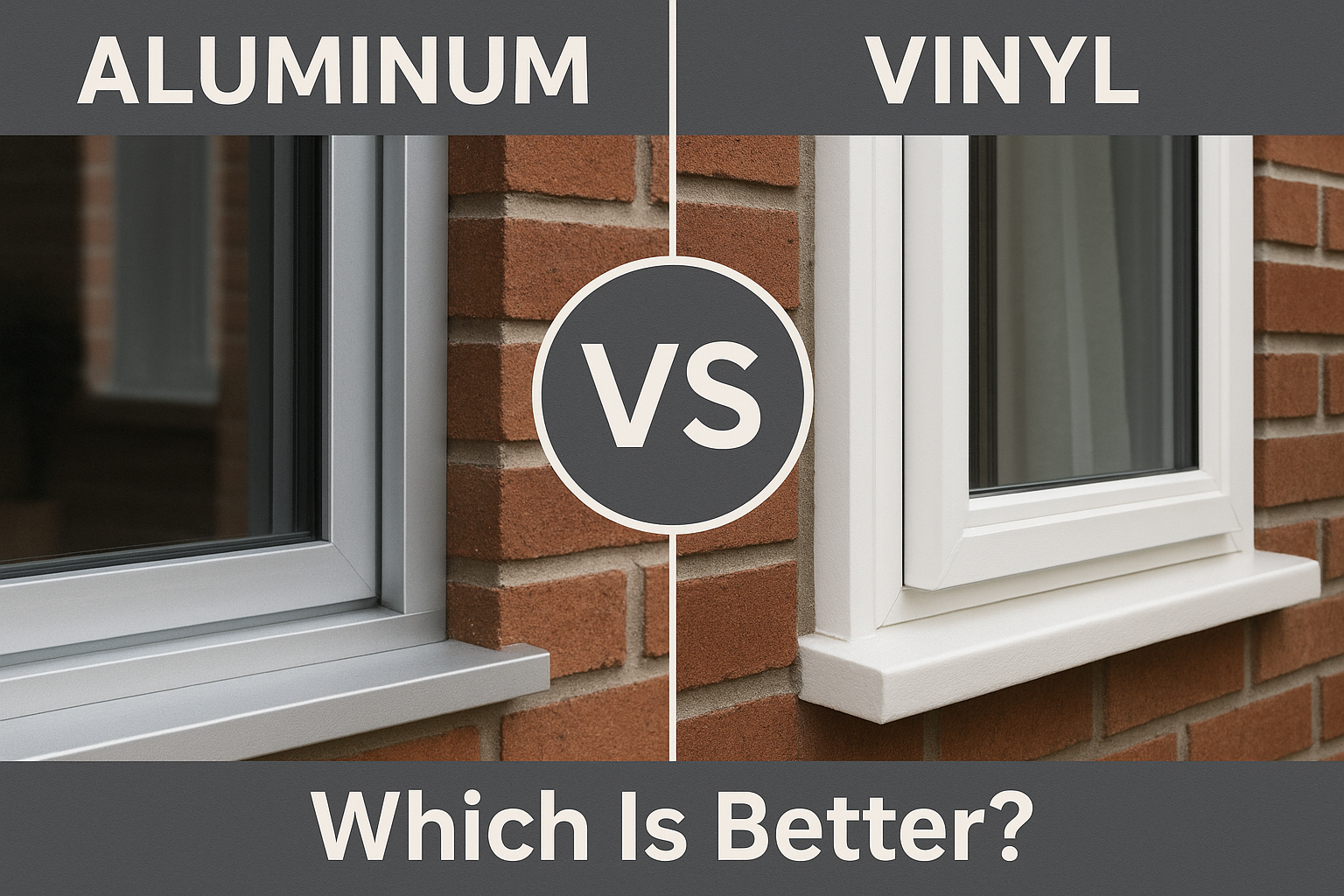
Let’s go back to basics. uPVC blocks heat. Its conductivity is about 700 times lower than aluminium. That’s why Emily’s heating bills went down after her replacement project. It meets or exceeds most green building codes, including ENERGY STAR, Homestar, and ESMA.
Soundproofing is another win. In a noisy neighborhood, uPVC performs better—especially when paired with triple glazing.
Then there’s maintenance. No rust. No repainting. A simple wipe-down keeps them looking new. That’s why Michael likes using them in projects where clients want “install and forget” windows.
| Strength | uPVC Benefit | Best For |
|---|---|---|
| Insulation | Keeps heat in/out | Cold or hot climates |
| Noise Blocking | Quieter interiors | Cities, busy roads |
| Low Maintenance | Easy cleaning | Busy homeowners |
| Price | Budget-friendly | Entry-level homes, rentals |
| Moisture Resistance | No corrosion | Coastal regions |
We even offer hybrid systems—uPVC inside, aluminium outside—for the best of both worlds. That’s where the future is headed.
Conclusion
uPVC windows win on insulation and price, aluminium wins on strength and style. The best choice comes down to what your project values most.
-
Explore the advantages of uPVC windows, especially their energy-saving properties, to make an informed choice for your home. ↩
-
Learn about thermal conductivity and its significance in choosing energy-efficient windows for your home. ↩
-
Discover why aluminium frames are favored in contemporary designs for their strength and aesthetic appeal. ↩
-
Understanding the implications of lower strength in uPVC windows can help you make informed decisions about your home’s durability. ↩
-
Exploring the lifespan of uPVC windows versus alternatives can guide you in choosing the best long-term investment for your property. ↩
-
This resource will provide insights into how uPVC windows perform in terms of insulation and soundproofing, crucial for any building project. ↩
-
Understanding life-cycle costs is essential for long-term budgeting; this link will help clarify the financial implications over time. ↩
-
Discover how uPVC windows can enhance your living environment by effectively blocking noise, making your home more peaceful. ↩
-
Learn why uPVC windows require minimal upkeep, making them ideal for busy homeowners looking for convenience and durability. ↩


